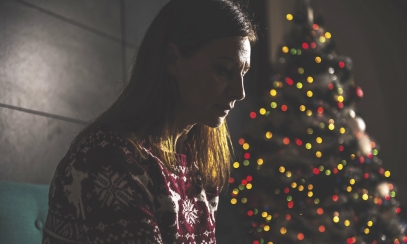
Hope and despair
It can be difficult to have hope when life seems futile or its struggles are overwhelming. When sorrow, addiction, loss, depression or anxieties and fears about the future or ruminations about the past seem too much to bear, how do we maintain hope?
It can be difficult to have hope when life seems futile or its struggles are overwhelming. When sorrow, addiction, loss, depression or anxieties and fears about the future or ruminations about the past seem too much to bear, how do we maintain hope?
Depending on the severity of the struggle, we might consider counseling, speaking to a friend or to a priest, exercise, going to confession and other such natural and spiritual remedies, which are quite reasonable.
Yet to have hope, we must learn to fix our eyes on Jesus Christ who has already won the battle for us and, in fact, has already taken upon himself the very sufferings that may be burdening us. As Catholics we know we are meant to spend eternity with God, and this is our final end. St. Thomas Aquinas teaches us that hope is both an emotion and a theological virtue, along with faith and charity.
The emotion of hope can be influenced by one's personality. For example, if one is naturally energetic, determined and has a “can-do” attitude, that helps one persevere through difficulties. The theological virtue of hope, however, is an infused virtue– meaning it is a grace freely given by the Lord beginning at baptism.
The object of the theological virtue of hope is God himself. Through this virtue, we rely on God's goodness and grace to bring us to him. Even when we sin, God can never fail. God is always ready to do what he can for those who truly seek him.
However, there are two enemies of hope: the vices of despair and presumption. “To despair is to lose trust in God's goodness and mercy, while presumption is the sin of assuming that God will give happiness to a man when he is not entitled to it. The sinner commits the sin of presumption when he hopes to attain the vision of God without repenting of his sins" (Farrell & Healy, 1952, p. 337).
Regardless of how we feel at any given moment, we can count on and believe in the theological virtue of hope. This does not mean we don't experience difficulties, or that we don't try to make our lives better or the world better through generosity and service. It means rather that we know that this life is not our final end and that we are destined for eternal beatitude with God which can help us to persevere through difficulties. Let us remember that God in his goodness and mercy has provided everything we need through the sacraments, the infused virtues, and the gifts of the Holy Spirit to lead us towards our final goal: friendship with him in eternity.
Farrell, W., O.P., & Healy, M. J. (1952). My way of life. Confraternity of the Precious Blood.
Whole & Holy is written by members of the Religious Sisters of Mercy of Alma, Michigan. The Sisters were founded in 1973 in the Diocese of Saginaw and are committed to providing comprehensive healthcare. The Sisters contributing to this column are trained in fields such as social work, psychiatry and social work. They strive to provide excellent healthcare through the professional training they receive and are sustained in their work through their common life of prayer.



